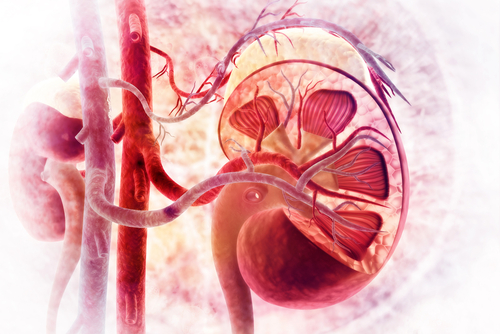Lupus Nephritis Patients with ANCA Antibodies Have More Aggressive Kidney Disease, Case Report Suggests

Lupus nephritis patients positive for ANCA antibodies show mixed symptoms of systemic lupus erythematosus and ANCA-associated vasculitis, culminating in aggressive kidney disease that does not respond well to remission-inducing therapies, a case report suggests.
The study, “Rapid progression to end‐stage renal disease in a young female with mixed immunopathological features of lupus and ANCA‐associated vasculitis,” was published in the International Journal of Rheumatic Diseases.
Autoimmune diseases develop when antibodies — blood proteins that normally target foreign pathogens like viruses or bacteria — begin attacking healthy cells. These abnormal antibodies, called autoantibodies, target various molecules in healthy cells, with different types of autoantibodies associated with distinct autoimmune diseases.
Systemic lupus erythematosus (SLE) is associated with autoantibodies that mostly target the cell’s DNA or nucleus, while ANCA-associated vasculitis is caused by ANCA antibodies. However, some patients with lupus nephritis — kidney inflammation caused by lupus — also may have ANCAs antibodies.
Researchers in Japan detailed the case of an 18-year old Japanese woman who developed aggressive kidney disease caused by lupus nephritis, and who also was positive for ANCA antibodies targeting the myeloperoxidase (MPO) protein.
The woman was admitted with kidney problems, fever, and joint pain. Her mother had been diagnosed with Sjögren’s syndrome, another autoimmune disease, many years before.
An examination revealed swelling in the salivary glands and tenderness in the finger joints. Lab tests showed low white cell count, anemia, low levels of albumin in the blood — a sign of internal organ failure or inflammation — and high levels of lipids in the blood.
The doctors also found elevated creatinine levels, and the presence of proteins and blood in the urine, all indicative of kidney damage. Additionally, the woman presented autoantibodies that are common in SLE, such as anti-nuclear and anti-DNA antibodies.
These results led to an initial SLE diagnosis. However, further exams showed the presence of MPO-ANCAs.
This meant the patient presented mixed symptoms of different autoimmune diseases. While swelling of the salivary glands is common in Sjögren’s syndrome, the scarred tissue seen in a kidney biopsy was suggestive of ANCA-associated kidney damage, although vasculitis was not found.
The microscopy results indicated lupus nephritis, which led to a final diagnosis of MPO-ANCA-positive lupus nephritis.
The patient started a remission-inducing therapy of prednisolone, a steroid, and cyclophosphamide, a chemotherapy medication. However, she had to stop taking cyclophosphamide due to adverse events, and started receiving Rituxan (rituximab) instead.
In spite of the treatment, the patient developed end-stage renal disease — when the kidneys no longer function properly — and had to undergo permanent dialysis. In addition to the dialysis, she takes maintenance doses of prednisolone and Rituxan, while she waits for a kidney transplant from her father.
This case showed “immunopathological findings suggesting a clinical presentation of [lupus nephritis] superimposed by ANCA‐associated glomerulonephritis,” the researchers said.
Previous cases of lupus nephritis with MPO-ANCAs had been associated with aggressive kidney disease that did not respond to therapy. Therefore, “MPO‐ANCA should be screened prior to renal biopsy in SLE patients having an aggressive course of renal injury even in young patients lacking extrarenal manifestations such as [ANCA-associated vasculitis],” the investigators said.
“This information may be helpful for planning remission induction therapy, although a standard treatment strategy has not been established in ANCA‐positive [lupus nephritis],” they concluded.






